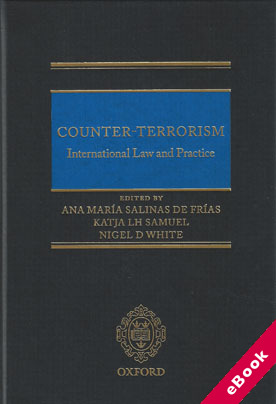
The device(s) you use to access the eBook content must be authorized with an Adobe ID before you download the product otherwise it will fail to register correctly.
For further information see https://www.wildy.com/ebook-formats
Once the order is confirmed an automated e-mail will be sent to you to allow you to download the eBook.
All eBooks are supplied firm sale and cannot be returned. If you believe there is a fault with your eBook then contact us on ebooks@wildy.com and we will help in resolving the issue. This does not affect your statutory rights.
The responses of governments and international institutions to terrorism raise some of the most controversial issues of the twenty-first century.
In particular, attempts to balance the desire to achieve security with the safeguarding of human rights and other aspects of the rule of law have proved to be highly contentious.
This book is unique, not only in terms of its multinational, multidisciplinary nature, but also due to its truly comprehensive approach. It reviews, and examines, the interrelationship between the four principal elements of the international rule of law framework (international human rights, humanitarian, criminal, and refugee/asylum law) within in which counter-terrorism responses should occur.
It focuses primarily on some of the most pressing, emerging, and/or under-researched issues and tensions. These include policy choices associated with meeting security imperatives; the tensions between the criminal justice, or preventive, approach to counter-terrorism and the military approach; the identification of lacunae within existing legal frameworks; and tensions between executive, judicial, and legislative responses. These matters are examined at the national, regional, and international levels.
The book addresses a wide spectrum of issues, including analysis of key legal principles; emergency and executive measures; radicalization; governmental and institutional impunity; classification, administration and treatment of battlefield detainees; the use of lethal force ; forms of, and treatment in, detention;non-refoulement; diplomatic assurances; interrogation versus torture; extraordinary rendition; discrimination; justice and reparations for victims of terrorist attacks and security responses; (mis)use of military courts, commissions, and immigration tribunals; judicial and institutional developed and emerging rule of law norms on terrorism; non-judicial oversight by means of democratic accountability; and the identification and analysis of best practices, including inter-regional judicial and other forms of cooperation, and developed practices for the handling and use of sensitive information.Drawing together an impressive spectrum of legal and non-legal, national and institutional, practitioner, policy, and academic expertise, this book is an essential and comprehensive reference work on counter-terrorism policy, practice, and law-making.